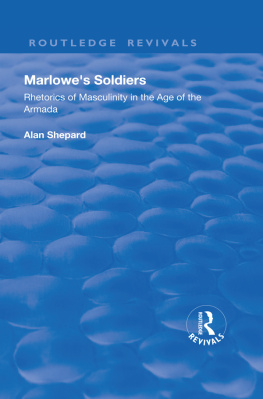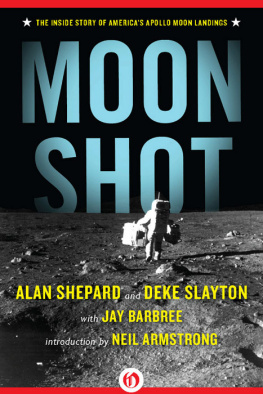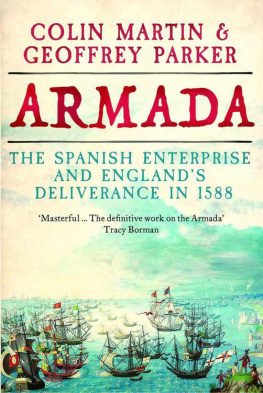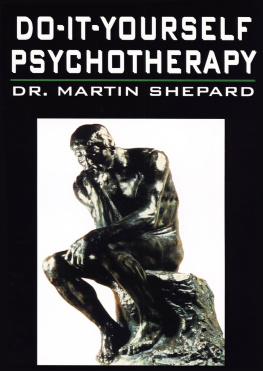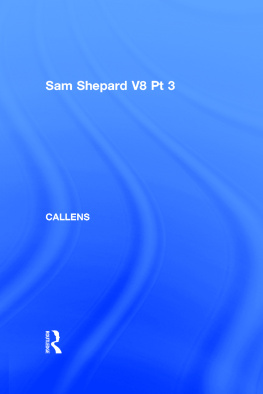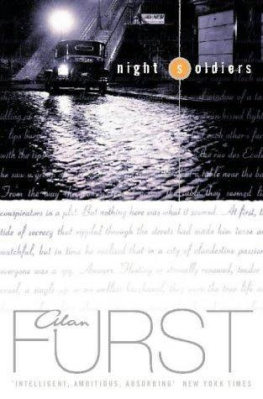Marlowes Soldiers
First published 2002 by Ashgate Publishing
Reissued 2018 by Routledge
2 Park Square, Milton Park, Abingdon, Oxon OX14 4RN
711 Third Avenue, New York, NY 10017, USA
Routledge is an imprint of the Taylor & Francis Group, an informa business
Copyright 2002 Alan Shepard
The author has asserted his moral right under the Copyright, Designs and Patents Act, 1988, to be identified as the author of this work.
All rights reserved. No part of this book may be reprinted or reproduced or utilised in any form or by any electronic, mechanical, or other means, now known or hereafter invented, including photocopying and recording, or in any information storage or retrieval system, without permission in writing from the publishers.
Notice:
Product or corporate names may be trademarks or registered trademarks, and are used only for identification and explanation without intent to infringe.
Publishers Note
The publisher has gone to great lengths to ensure the quality of this reprint but points out that some imperfections in the original copies may be apparent.
Disclaimer
The publisher has made every effort to trace copyright holders and welcomes correspondence from those they have been unable to contact.
A Library of Congress record exists under LC control number: 2001032806
ISBN 13: 978-1-138-72520-1 (hbk)
ISBN 13: 978-1-315-19199-7 (ebk)
Its a pleasure to be able to thank friends and colleagues who have read drafts of chapters or helped me in other ways with the project: Emily Bartels, Beth Bjorklund, Joe Black, Rick Bozorth, Gordon Braden, Mark Thornton Burnett, Lisa Celovsky, Kevin Gustafson, Julie Hardwick, Linda K. Hughes, Alexander Leggatt, Katharine Eisaman Maus, Stephen Powell, Simon Shepherd, Paul Whitfield White, Steven Wozniak, an anonymous reader for Ashgate, and especially David Bevington, who generously read the entire manuscript at a critical moment. Erika Gaffney at Ashgate has been splendid to work with.
I am fortunate to have had the opportunity to do some of the research and writing for this project as a Senior Fellow at the Centre for Reformation and Renaissance Studies (CRRS) at Victoria University in the University of Toronto. The Centre provided an ideal atmosphere for scholarship. For his generosity in making my stay there a success, I warmly thank Konrad Eisenbichler, then director of the Centre. Joe Black, Lisa Celovsky, and David Galbraith were also generous CRRS hosts. Some of the claims in this book began to take shape several years ago in Richard Waswos Imperial Themes seminar at The Folger Library, and I am grateful to him for a stimulating experience and to the librarys director and staff for a grant that made it possible for me to participate. For research assistance at TCU, I thank Doug Hollinger and Cathy Gabor; for interlibrary loan assistance, Joyce Martindale. I am grateful to my English Department colleagues, especially Fred Erisman, Linda K. Hughes, and Gary Tate.
For her untold support back in Charlottesville, I remain indebted to Anne MacMaster. And I thank my families, the Shepards and the Powells, especially Stephen.
I have read bits of this project at meetings of the ML A, Renaissance Society of America, Group for Early Modern Cultural Studies, and the Sixteenth Century Studies Conference; at Kalamazoos Medieval Congress; at the Medieval and Renaissance Studies Conference in Tempe; and at two gatherings at Cambridge University of the Marlowe Society of America. Thanks to fellow participants who have helped me to sharpen my arguments.
The editors of Renaissance Quarterly have granted permission to reprint parts of my article on Tamburlaine (46 [1993]: 73453), which , on The Jew of Malta , appeared in History and Sexuality: New Critical Essays on Christopher Marlowe , ed. Paul Whitfield White (New York: AMS, 1998), 10930, parts of which are reprinted here by permission of AMS Press.
Quotations of Marlowes plays are taken by permission from The Revels Plays: Dido, Queen of Carthage and The Massacre at Paris , ed. H.J. Oliver (Harvard University Press, 1968); Doctor Faustus: A- and B-Texts (1604, 1616), ed. David Bevington and Eric Rasmussen (1992; rpt Manchester University Press, 1997); Edward II , ed. Charles R. Forker (Manchester University Press, 1994); The Jew of Malta , ed. David Bevington (Manchester University Press, 1997); and Tamburlaine , ed. J.S. Cunningham (1981; rpt Manchester University Press, 1999).
When quoting early modern materials I generally modernize u/v and i/j and sometimes silently expand elisions, but for the most part I leave the early modern spelling as it is.
Trumpets and drums, alarum presently,
And soldiers, play the men; the hold is yours!
2 Tamburlaine 3.3.623
When wert thou in the field with banner spread?
But once! And then thy soldiers marched like players,
With garish robes, not armour
Edward II 2.2.1813
filthie stage plaies have bin suffered even in our chiefest city
Oliver Pigg
When the prominent Puritan divine Oliver Pigg denounces filthie stage plays as inimical to Londons well-being, his complaint assumes a deep link between the theater and national security in late sixteenth-century England. It was a link some more or less influential Londoners considered extremely hazardous in the 1580s and 1590s, on the grounds that playing the men on the stage or even worse, playing the soldier there would compromise Englands military readiness in a period of near-constant anxiety about yet another Spanish invasion of England and Ireland. Other wags in the capital, among them Christopher Marlowe, leveraged that imputed link between the theater and national security for delight and profit. This study reads Marlowes plays as entertainments that engage and exploit the rhetoric of war fever that had been building in England from the mid-1580s and that continued at a fairly high volume until the end of Elizabeths reign. Despite the governments efforts to pretend that the attack on Englands shores by the Spanish Armada in July 1588 was not a crisis, a stance the queen had intermittently insisted on, the Anglo-Spanish War, the Armada itself, and its fallout across the next fifteen years or so elicited from the English a surge of nationalism, Kenneth Andrews says, probably more intense and generally felt than ever before. If the attack sparked new interest in the strength of Englands physical security, it also created a demand for a new kind of public discourse about Englands enemies, one that spilled beyond the court at Whitehall, church pulpits, and pubs. Although it is reasonable to assume that the people who inhabit any state or nation talk about its security on occasion, especially when threatened, it is not always the case that they make its security a subject of their own amusement, especially in time of war. But that is what happened in England in the 1580s and 1590s. Sometimes obliquely, often not, the security of the state and of the monarchy became topics of public discourse in places designed to entertain the populace especially in the public theaters and bookstalls. George Peele, Thomas Kyd, George Chapman, William Shakespeare, Christopher Marlowe and a host of other playwrights concocted dramas that put English soldiers or even just soldiers in general on the stage to amuse and astonish ordinary people. What is Peeles The Battle of Alcazar if not a complex effort to depict the historical English mercenary Tom Stuckley in service to the king of Portugal as a savvy hero, all the while acknowledging him as a Catholic proteus who could just as well have posed more danger to Englands state security than to Moroccos? And in bookstalls at St Pauls, amidst the volumes of romances for sale, ordinary citizens were also able to buy what were virtually the first military handbooks ever published in English. They purported to advise readers as well as the queen and her lieutenants on various subjects, mostly strategy, weaponry, protocol, and the rules of engagement. As never before, Englands state security had become a topic fit for the intellectual engagement and the bemused wonderment of ordinary people.

